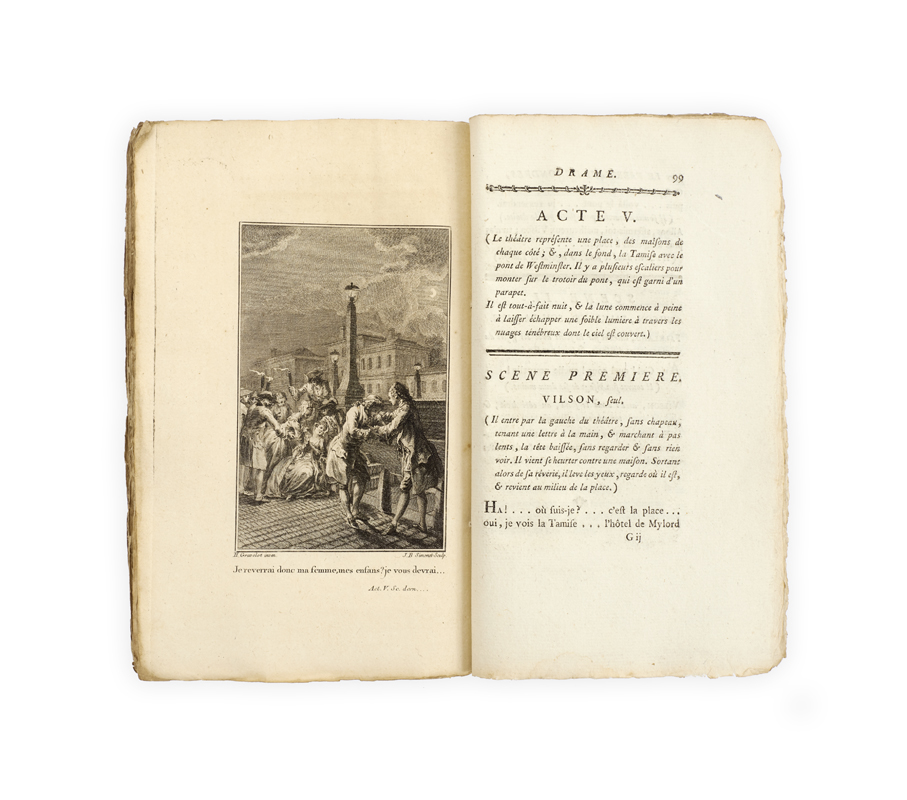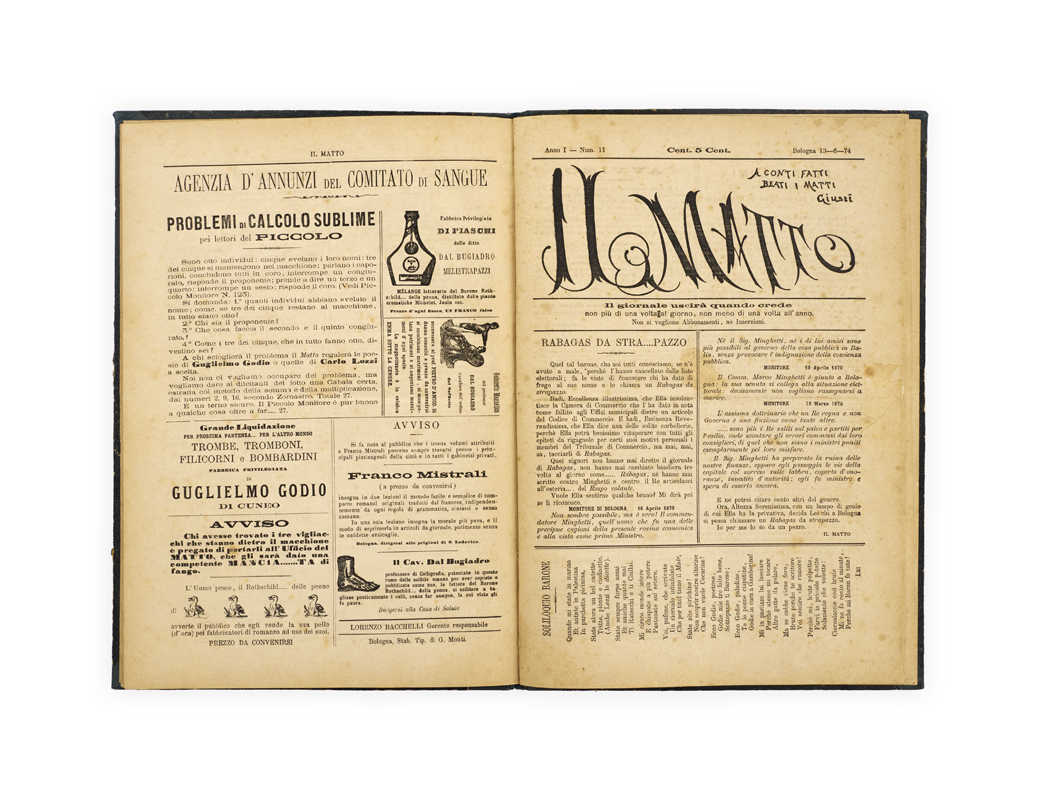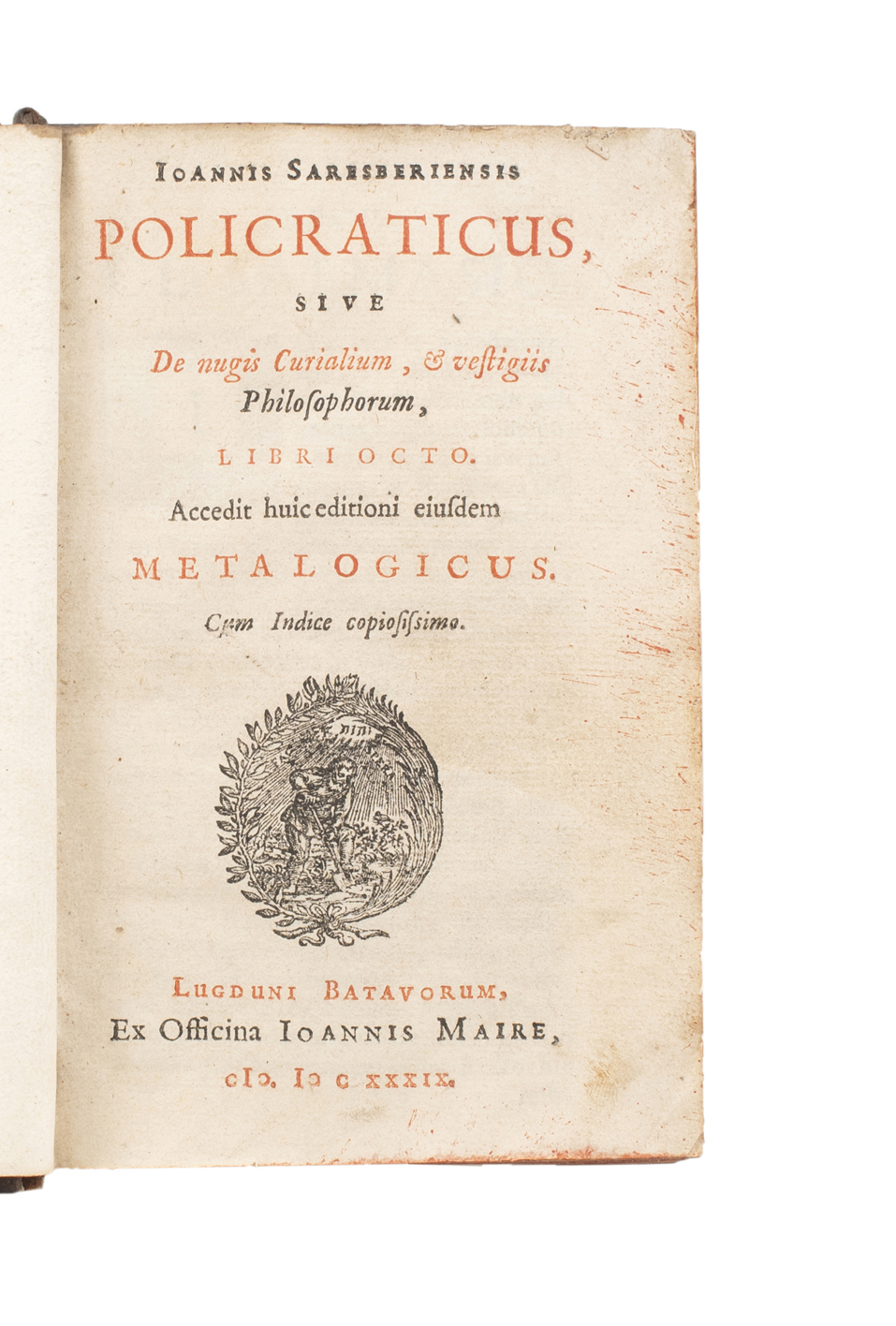
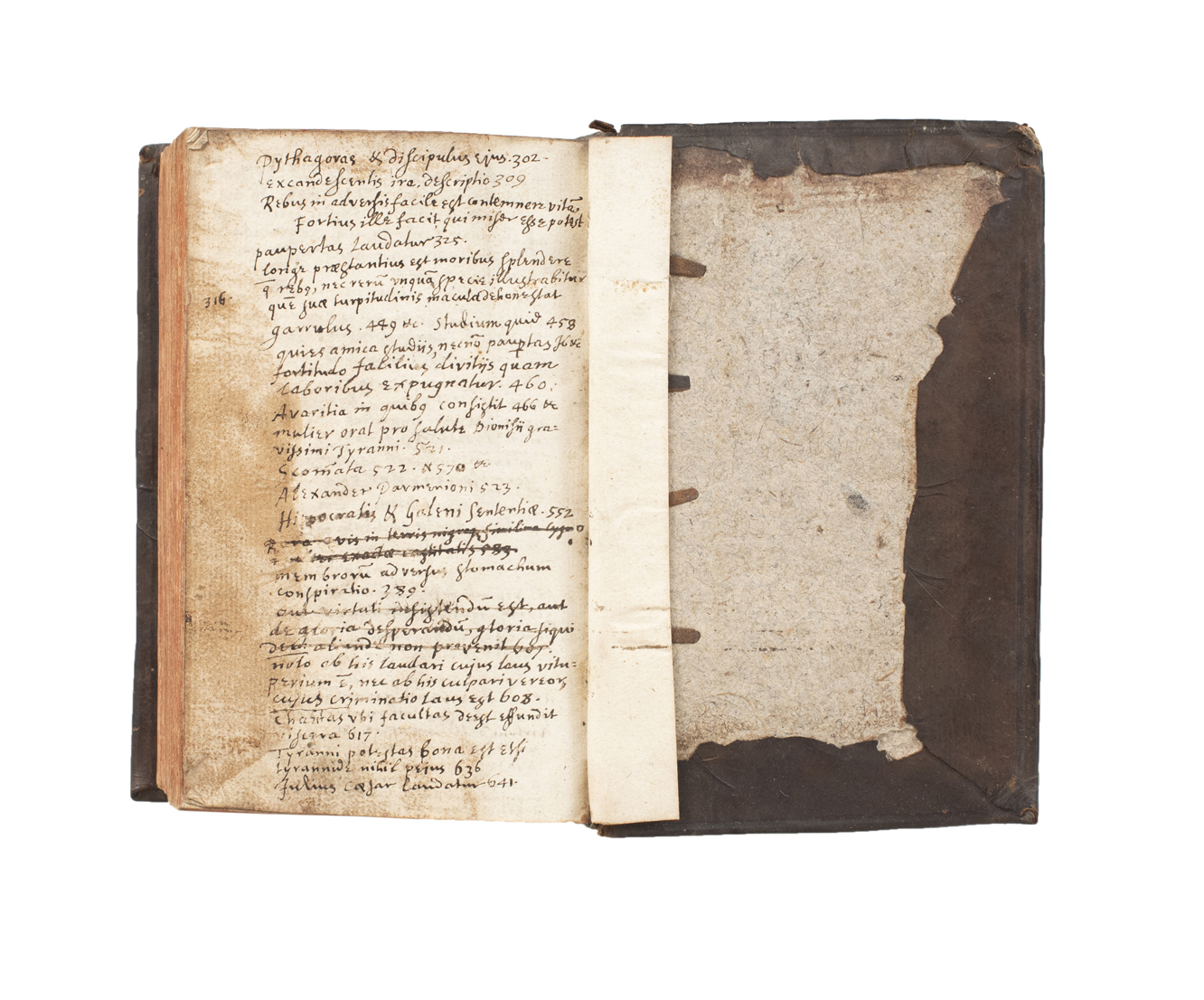
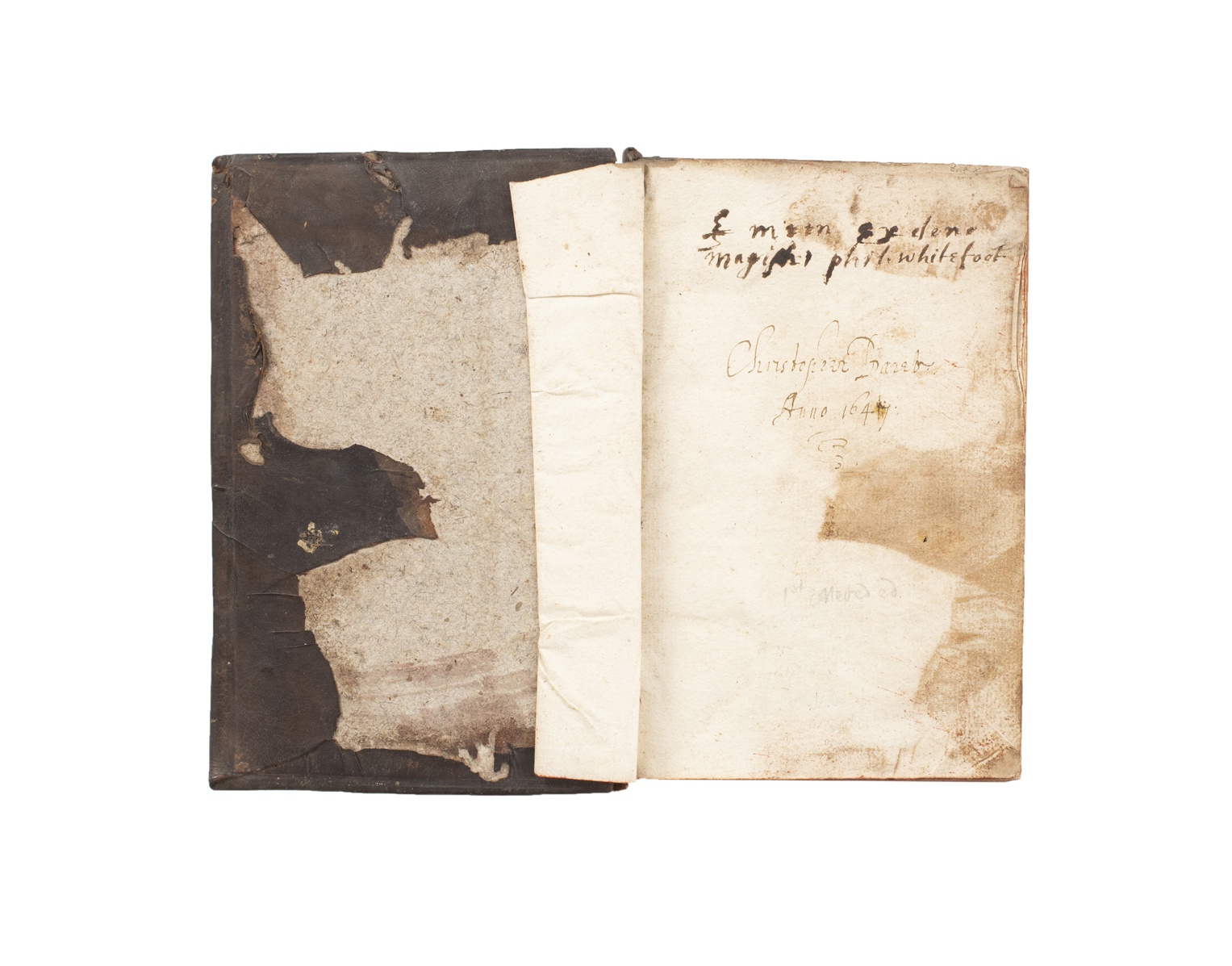
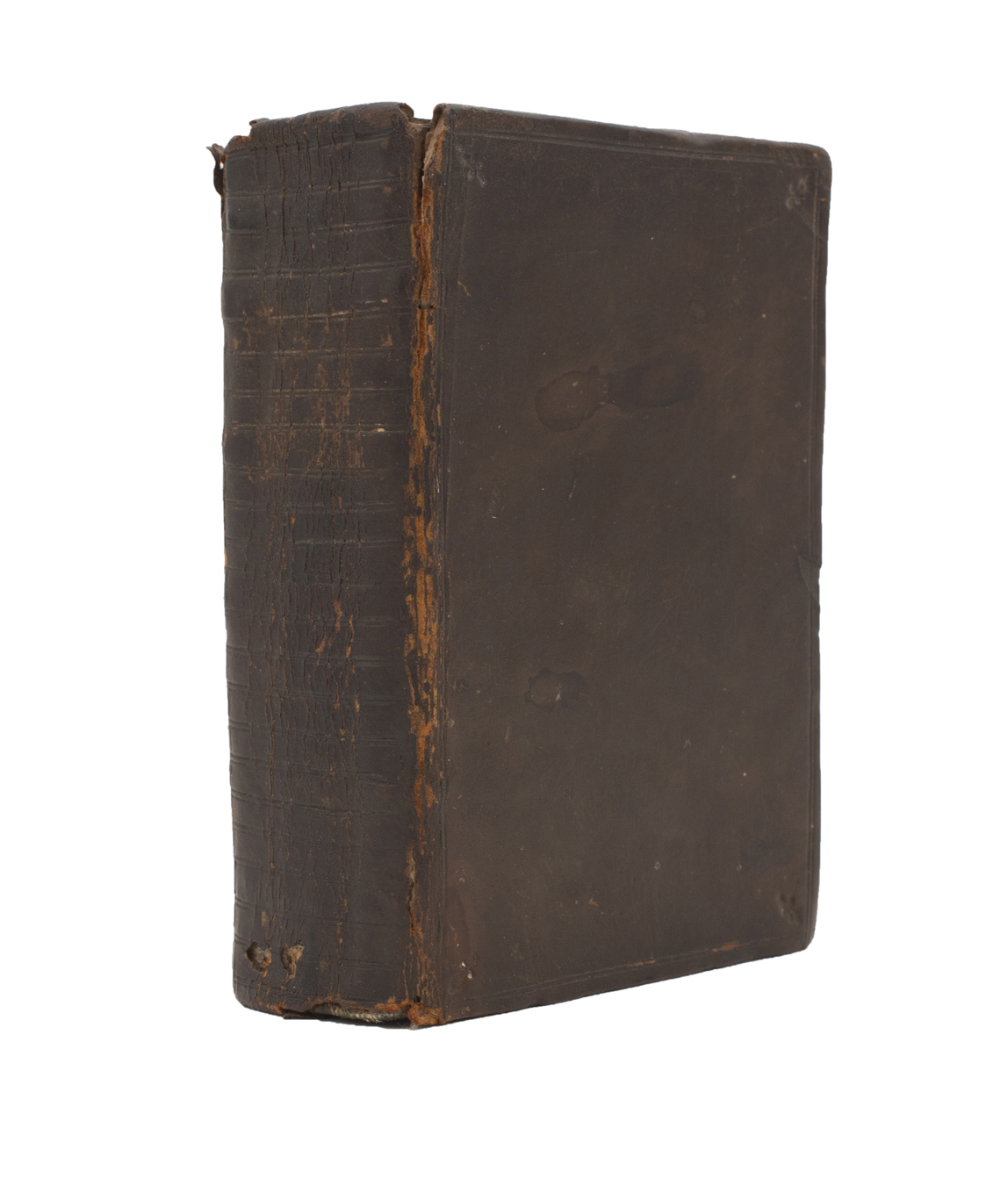
ON POLITICAL THEORY AND EDUCATION
JOHN OF SALISBURY.
Policraticus, sive de nugis curialium, et vestigiis philosophorum, libri octo. Accedit huic editioni eiusdem Metalogicus. Cum indice copiosissimo.
Leiden, Joannes Maire, 1639.
8vo, pp. [16], 931, [1]; *2 a cancel; title printed in red and black with woodcut device, woodcut initials and ornaments; a very few light marks; a very good copy in contemporary British calf; joints a little worn and slightly cracked at head, two small holes at foot of spine; ownership inscriptions of ‘Phil. Whitefoot’ and ‘Christopher Baret Anno 1647’ to front free endpaper, manuscript index in a seventeenth-century hand to rear free endpaper.

Added to your basket:
Policraticus, sive de nugis curialium, et vestigiis philosophorum, libri octo. Accedit huic editioni eiusdem Metalogicus. Cum indice copiosissimo.
Attractive Maire edition of the two principal works of the twelfth-century scholar, diplomat, and bishop of Chartres, John of Salisbury, both completed by 1159 and dedicated to Thomas Becket.
‘On the Policraticus (‘The statesman’) more than on any other of his works ... rests John’s reputation as a humanist scholar. It was very widely read later in the middle ages ... In eight books John explores the opposition between the pursuit of philosophy and the habits of courtly life. The Policraticus seems to be at once a work of political theory, a manual of government, a mirror of princes, a moralizing critique of life at court; and also an encyclopaedia of letters and learning, a storehouse of exempla and historiae, and a didactic philosophical and ethical treatise. It recommends to lax, epicurean courtiers a wide programme of education in letters, philosophy, and law. Although it is certainly fat, the work is not in fact as loosely organized as it first appears: John seems to have started upon it when, in disgrace with the king, he meditated on the theme of fortune (book 7). Then he wrote a ‘mirror of princes’ (book 4), and then the books on courtiers. Finally in the summer of 1159 he expanded these essays, and bound them all together in eight books’ (ODNB).
‘The Metalogicon was written to defend the study of all the seven liberal arts from becoming streamlined and narrowly career-orientated. The work is the fruit of John’s years of study during which he had learned the value of a broad education in which the powerful weapons of dialectic are mastered, but kept under control by a firm grounding in grammar and the other liberal arts’ (ibid.).
The Policraticus was first published circa 1480, and the Metalogicon in 1610 (in an incomplete and faulty Paris edition).
Brunet III, 547.
